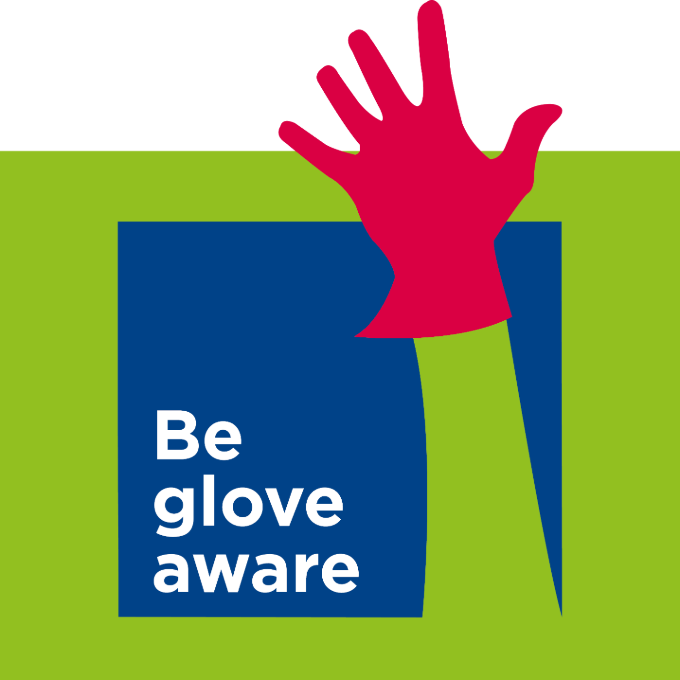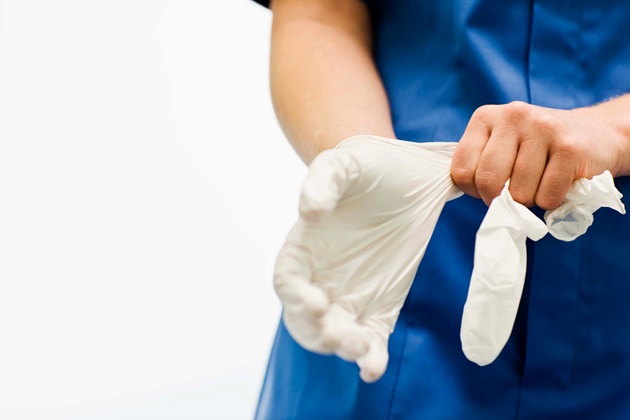Safety reps can play a key role in helping reduce the incidence of work-related contact dermatitis among nursing staff
Glove Awareness Week begins at the end of April, offering RCN safety reps an opportunity to help reduce the incidence of debilitating work-related skin conditions among nursing staff.
It’s estimated that every year 1,000 health care workers develop contact dermatitis through their work.
This is seven times higher than the average for all professions but, because of under-reporting, may only be the tip of the iceberg.
There is a close relationship between glove use and infection prevention and control but inappropriate use of gloves can put staff at risk of contact dermatitis which can have an impact on clinical care.
Safety reps are crucial in getting this message out there and making sure everyone is skin and glove aware
RCN National Officer Kim Sunley says: “Severely cracked and broken skin is not only painful but it can be an infection risk to staff and patients. If nursing staff have damaged hands then in some cases they might be withdrawn from clinical areas, many of which are already short staffed.
“It’s in everyone’s interest to try and prevent this from happening and safety reps are crucial in getting this message out there and making sure everyone is skin and glove aware.”
There are some simple steps safety reps can take to raise awareness in their workplace. To mark Glove Awareness Week, which runs from 29 April, the RCN has produced a number of useful resources, including posters and leaflets. The College also has updated Tools of the Trade guidance on glove use and the prevention of contact dermatitis.

Kim says: “Any health care employer can use this guidance to make sure they have the appropriate processes in place.
“Safety reps may want to take a copy along to one of their health and safety committee meetings to make sure the issues around glove use and contact dermatitis are being discussed and addressed within their organisation.”
Although the guidance was developed with members and safety reps in mind, it’s relevant to all managers of clinical services and health care staff across the UK, including those who work in non-hospital settings. It includes a checklist on page 26 which lists practical steps safety reps and employers can take.
Reps may want to ask nursing staff if they have regular skin checks carried out by their manager
Kim says: “It’s important to remember that it’s the employers’ legal responsibility to protect employees from the risks of workplace ill health, including work-related dermatitis.
“But safety reps can use the checklist to help monitor and improve conditions in their workplace, working alongside their employer, occupational health and infection prevention and control teams.
“For example, if reps have capacity, they may want to pick a couple of areas to undertake an inspection and ask nursing staff questions such as, if they have regular skin checks carried out by their manager and access to hand cream at work.
“Safety reps could also find out whether COSHH assessments have been carried out on harmful substances used in the work environment.”
More information
- To find out more information and download useful resources, visit our skin health pages.
- The RCN is hosting Glove Awareness Week in collaboration with Molnlycke and SC Johnson Professional.








